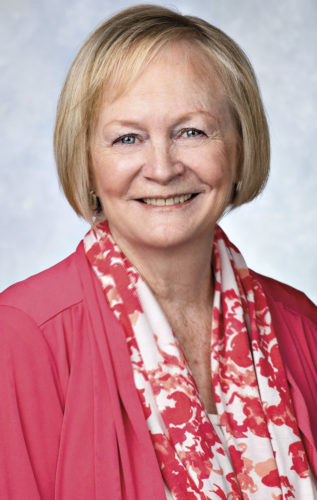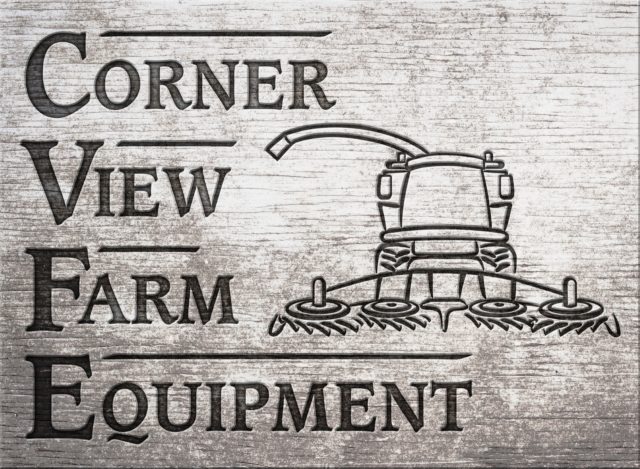I couldn’t pass that up. Risks aside, it seemed a reasonable chance to take.
At the base of the mountain, three TV film crews met us. Wait a minute; nobody told me I would be on film in my farmer gear while everyone else was in fancy ski gear. (I would have at least reconsidered my farm coat and beanie.)
I climbed into a four-wheel-drive pickup with a district water master who was also going; he seemed like my kind of people. We visited about irrigation and water rights and issues all the way to the near-top of the mountain and were disappointed together when we hit the barricade proclaiming “road closed.” What? Closed? Due to snow? But that’s what we came to measure. “Yeah,” the water master said, “I’d heard there were avalanche warnings out.”
The result was the chain of cars slowly making a U-turn and parking in the nearby plowed parking lot. From here, we walked maybe 50 yards down the road before turning off into the trees to take a snowpack survey on Bears Creek. It was great but anticlimactic. I wanted to see the top of the mountain at Mores Creek (if nothing else, to show my kids I’m not as old as they think I am).
After filming the snowpack survey process, the other media crews packed up their gear and left. Not us.
“I think we can make it up to the Mores Creek station,” our hydrologist leader said. “The snowplow guy at the barricade was just concerned about a whole chain of cars going up the mountain. But two cars will be all right.” Meaning what? The agency’s insurance would cover two cars in an avalanche but not six? Nah, surely that’s not what he meant; the avalanche warning must be past.
The two hydrologists, the water master and I drove on up the road, around the avalanche barricade and through a narrow channel of plowed snow and broken trees that reached over 20 feet in places. My heart gave a nervous leap as we drove around the barricade. I’m not a rule-breaker by nature, and what about the avalanche warnings? But I was with people who were experienced, right? They knew what they were doing.
At the top of the mountain, we parked and pulled our gear together, and then the water master pulled out a small square-headed shovel and announced, “OK, I’ve got the avalanche shovel.”
The what? So the avalanche warning is still on? That square-headed shovel was our lifeline, the only thing standing between me and death-by-avalanche? Was he kidding? No, clearly he wasn’t.
This changed the risk-to-gain ratio considerably. Even I could see one shovel among four people wasn’t going to save us in an avalanche. I was pretty certain my life was worth more than one shovel – surely I’m at least a two-shovel woman. Was this worth the risk?
The National College for Teaching and Leadership says there are five ways to mitigate risk: reduce it, avoid it, accept it, transfer it or exploit it.
Had I known of the avalanche warning beforehand, I could have reduced the risk, avoided it altogether or accepted it. (My first choice was to simply ignore it, but apparently that’s not an option.) In hindsight, I still could have taken more steps to reduce the risk. (Two shovels? Invite the football team to come and be backup shovelers?)
It just caught me blind-sided. So what did I end up doing? I pulled out my cellphone camera to prove I was there (choosing to exploit it). I just hope the kids never find out what a poor example I set in risk management.
This time of year, we often talk about the risks of farming or ranching another year. I’ll just cut to the chase – yes, the risk is there. We both know it’s possible your worst-case scenario (drought, flood, crop loss) could come true. But I’ll offer you the same advice: You can reduce it, avoid it, accept it, transfer it or exploit it. What will you choose?
(Even if I didn’t have to use the avalanche shovel, it still took 10 years off my life. The kids are right ... now – I am older. I’ll tell them I was making a point: “Exploiting risks is a poor choice and will take 10 years off your life. And you may have to write about it some day and reveal what a ninny you were.”) ![]()

-
Lynn Jaynes
- Editor
- Progressive Forage
- Email Lynn Jaynes
I couldn’t pass that up. Risks aside, it seemed a reasonable chance to take.
At the base of the mountain, three TV film crews met us. Wait a minute; nobody told me I would be on film in my farmer gear while everyone else was in fancy ski gear. (I would have at least reconsidered my farm coat and beanie.)
I climbed into a four-wheel-drive pickup with a district water master who was also going; he seemed like my kind of people. We visited about irrigation and water rights and issues all the way to the near-top of the mountain and were disappointed together when we hit the barricade proclaiming “road closed.” What? Closed? Due to snow? But that’s what we came to measure. “Yeah,” the water master said, “I’d heard there were avalanche warnings out.”
The result was the chain of cars slowly making a U-turn and parking in the nearby plowed parking lot. From here, we walked maybe 50 yards down the road before turning off into the trees to take a snowpack survey on Bears Creek. It was great but anticlimactic. I wanted to see the top of the mountain at Mores Creek (if nothing else, to show my kids I’m not as old as they think I am).
After filming the snowpack survey process, the other media crews packed up their gear and left. Not us.
“I think we can make it up to the Mores Creek station,” our hydrologist leader said. “The snowplow guy at the barricade was just concerned about a whole chain of cars going up the mountain. But two cars will be all right.” Meaning what? The agency’s insurance would cover two cars in an avalanche but not six? Nah, surely that’s not what he meant; the avalanche warning must be past.
The two hydrologists, the water master and I drove on up the road, around the avalanche barricade and through a narrow channel of plowed snow and broken trees that reached over 20 feet in places. My heart gave a nervous leap as we drove around the barricade. I’m not a rule-breaker by nature, and what about the avalanche warnings? But I was with people who were experienced, right? They knew what they were doing.
At the top of the mountain, we parked and pulled our gear together, and then the water master pulled out a small square-headed shovel and announced, “OK, I’ve got the avalanche shovel.”
The what? So the avalanche warning is still on? That square-headed shovel was our lifeline, the only thing standing between me and death-by-avalanche? Was he kidding? No, clearly he wasn’t.
This changed the risk-to-gain ratio considerably. Even I could see one shovel among four people wasn’t going to save us in an avalanche. I was pretty certain my life was worth more than one shovel – surely I’m at least a two-shovel woman. Was this worth the risk?
The National College for Teaching and Leadership says there are five ways to mitigate risk: reduce it, avoid it, accept it, transfer it or exploit it.
Had I known of the avalanche warning beforehand, I could have reduced the risk, avoided it altogether or accepted it. (My first choice was to simply ignore it, but apparently that’s not an option.) In hindsight, I still could have taken more steps to reduce the risk. (Two shovels? Invite the football team to come and be backup shovelers?)
It just caught me blind-sided. So what did I end up doing? I pulled out my cellphone camera to prove I was there (choosing to exploit it). I just hope the kids never find out what a poor example I set in risk management.
This time of year, we often talk about the risks of farming or ranching another year. I’ll just cut to the chase – yes, the risk is there. We both know it’s possible your worst-case scenario (drought, flood, crop loss) could come true. But I’ll offer you the same advice: You can reduce it, avoid it, accept it, transfer it or exploit it. What will you choose?
(Even if I didn’t have to use the avalanche shovel, it still took 10 years off my life. The kids are right ... now – I am older. I’ll tell them I was making a point: “Exploiting risks is a poor choice and will take 10 years off your life. And you may have to write about it some day and reveal what a ninny you were.”) ![]()

-
Lynn Jaynes
- Editor
- Progressive Forage
- Email Lynn Jaynes









